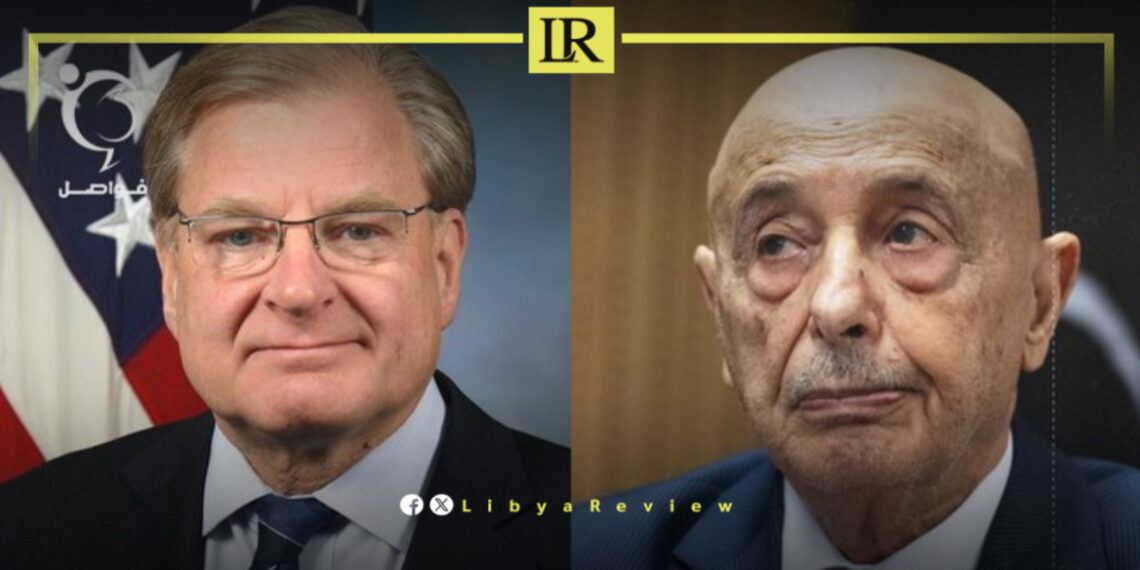On Wednesday, US Special Envoy to Libya, Richard Norland, reaffirmed the United States’ commitment to Libya’s political and economic stability in a phone call with Speaker of the Libyan Parliament, Ageela Saleh.
The discussion focused on the need for a unified national budget, ensuring transparency in Libya’s financial institutions, and advancing negotiations toward a single, legitimate government capable of leading the country to elections.
Norland emphasized the importance of a functional, consensus-based budget to stabilize Libya’s economy and prevent further political fragmentation.
He also highlighted the critical role of the Central Bank of Libya (CBL) and the National Oil Corporation (NOC) in maintaining economic balance, urging all parties to prioritize national interests over political rivalries.
Libya remains divided between two rival governments—the Tripoli-based Government of National Unity (GNU), led by Abdul Hamid Dbaiba, and the House of Representatives-backed government in the east, led by Osama Hammad.
The national budget remains a contentious issue, with disagreements over spending priorities, revenue allocation, and financial oversight stalling progress. Without a unified budget, Libya’s public sector salaries, development projects, and essential services remain at risk, deepening the country’s economic crisis.
The United States, along with the United Nations and European Union, has been actively pushing for a comprehensive political agreement to resolve Libya’s leadership crisis.
Hanna Tetteh’s appointment as the new UN Special Representative for Libya has renewed hopes for a negotiated settlement, but achieving tangible progress requires commitment from Libyan leaders.


